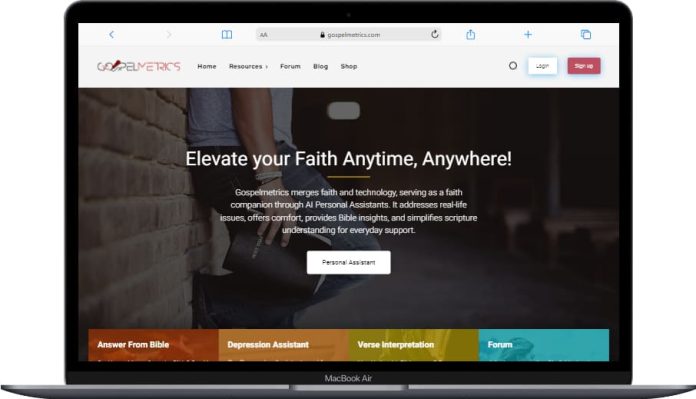[ad_1]
As we continue our MOOC journey together, MOOCer is our last guest today to share with us his wisdom, experience and passion for teaching, MOOCing, among other things. Well, without much ado, let's welcome a great teacher from the Philippines, Sir Michael Mauricio!
- You are a high school teacher and at the same time a university teacher, right? Can you tell the difference between a high school student, a college student, and a wise attitude?
Wise attitude, maturity is a big factor. We expect a college student to be more responsible, independent and able to make wiser decisions than a high school student. This can be seen clearly during class sessions, class presentations, presentation of outputs and projects, and the like.
- I've been in research for years, how do you rate 1 to 10 – where 10 is higher – the student's attitude to research? why?
It really depends on the group of students you deal with. If we take the example of high school students, inclination is an important factor when conducting research. In my experience, those in academia are more interested in research. Seven (7) is justified. But for those who are in the TVL strand, it differs. For students of computer programming, 8, for consumer electronics, home economics, and computer system service, 4-5.
- Research products can be innovation, intervention programs and the like, right? What innovations and / or intervention programs have I “realized” or should I say, have been implemented in this area? What are the effects of this so far?
My research interests include mobile learning or teaching over the phone, language learning via mobile phone, and self-learning. As a defender of Mobile Integrated Education, I saw how important investigation is in this field because I learned from many of the teachers I interviewed how they understood and were able to use these promising devices to improve students' learning outcomes. Taking a pause "Gods and Gods" in the section about these emerging devices that I consider as low-resource materials for teaching and learning, it strongly motivates me to allow them to realize the inevitable future of education with these complex and promising devices for learning inside and outside the classroom.
- The researcher's journey can be either difficult or what, right? So what did you suffer from, which could be of interest to you or meaningful to you as a serious dead person regarding his severity?
Metaphorically, doing research is like traveling by train. Unlike other modes of transportation that mainly relate to getting from point A to point B, what makes the trip memorable and meaningful is the ride where you can meet new people, see landscapes, make friends, create connections, Building societies. Every station you pass, you get rewards and try small wins that are worth celebrating. Because of the research, I managed to travel and introduce my business locally and internationally, met great names, made friends, and built networks.
- I heard that you entered an open online course or known as MOOCs, how did you get the variation virus? Who started you?
I was curious about some of my FB’s postmates about a "free" online course. Out of curiosity, I sent a personal letter to her and inquired about her. Because of her tempting invitation, she decided to give it a try. She told me to send mr message Albert Navarra, a mutual friend who is also a graduate student at the University of the regular Philippines. Because I work in Bulacan, I was referred to the MOOC Leader in the person of the lady Eliana May Lazaro Cabral. Because of my positive experience in the first course that I took, I continued taking other courses. It has already considered this a stress-relieving activity as it becomes a productive one or two hours a day. In my experience, the really nice thing about MOOCing is that I was able to see a meeting with passionate teachers offering their selfless help to those who are eager to learn and improve professionally.
- Can you tell your most challenging experience with moocing? To say .
With the workload I added at school to my responsibilities as a graduate student, providing time for a course "including meetings and LAC sessions is the biggest challenge I faced as a MOOCer.
- How many courses did you receive and what did you learn from these courses?
She managed to finish three courses: professional development for teacher trainers, English for media literacy, and content-based education. generally, I learned a lot about content and education. With these three amazing courses, I was able to review some of the "somewhat forgotten" concepts and structures in teaching. In addition, it also helped me craft relevant lessons for technology-dependent learners.
- How important is the professional development of the teacher? Explain it.
As they say, "Learning ends in a grave." Every day is a new day. For the teacher, "new things" are always on their way. We must not only be ready to learn new things, but we must be prepared to learn them. I always end my conversations with this statement. We can no longer teach the way we learn yesterday but we have to learn how to teach today. Professional development is a maintenance drug that a teacher should never forget.
- Aside from cleansing, doing research and teaching, what other hats do you wear?
I consider serving people one of the most performance roles I've been playing. By volunteering in community outreach programs, I realized my goal as a teacher, as a citizen, and as a person. Meeting people from different cultures, psychology and attitudes has taught me how to appreciate life in different angles using my optics. Engaging in volunteer work helped me distinguish between "making a name" and "making a difference."
- Describe your journey as a teacher in one word.
"Services"
Gorgeous! Thank you very much, sir Michael, for being a good intellectual that anyone can look forward to. May your tribe increase!
Michael C. Mauricio is a senior high school teacher and research coordinator at the Tal Secondary School of the Ministry of Education. Likewise, he belongs to Jesus and is the Lord Colleges Foundation (JILCF) Inc. As a college college part-time. He is a candidate for a Master’s degree in Education with a major in Teaching English at the Regular University of the Philippines – Manila, Philippines. His research interests include mobile learning, mobile assisted language learning, autonomy in learning, and language learning in an integrated manner with technology.
[ad_2]&


